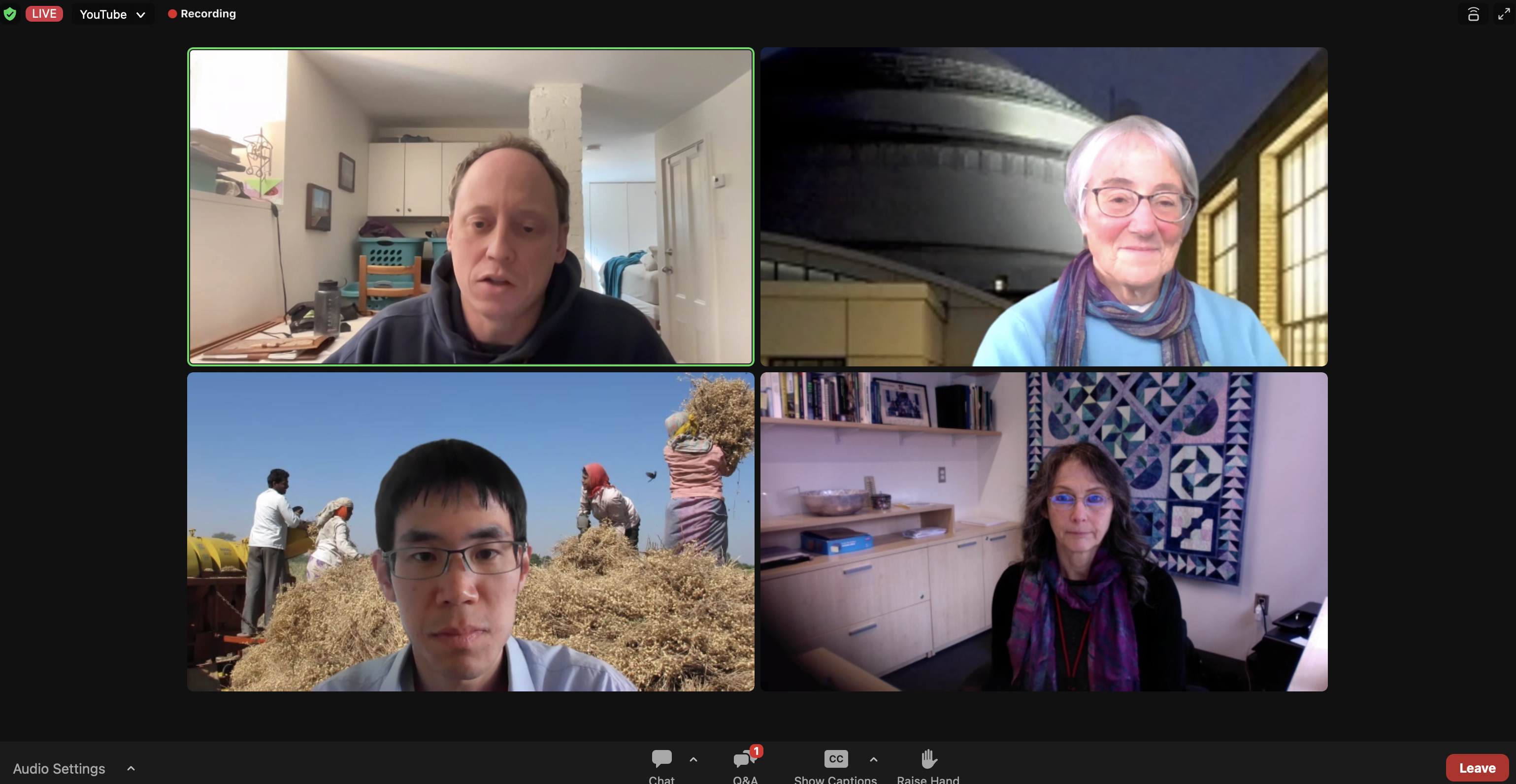News J-WAFS researchers present to the MIT Alumni Energy, Environment, and Sustainability Network
Kevin Kung and Eric Verploegen shared innovative solutions to help smallholder farmers and advance environmental and economic sustainability in the world's food systems.
Maria Paula Acosta April 5, 2023

L to R: J-WAFS researcher Eric Verploegen, webinar host Sarah Simon, J-WAFS researcher Kevin Kung, and J-WAFS executive director Renee Robins
On March 15, the MIT Alumni Energy, Environment, and Sustainability Network (EESN) hosted a webinar with J-WAFS executive director Renee J. Robins and current and former J-WAFS-funded researchers Kevin Kung and Eric Verploegen. Kung and Verploegen presented innovative solutions to help smallholder farmers and advance environmental and economic sustainability in the world's food systems.
At the start of the webinar, Robins provided an overview of the work supported by J-WAFS that advances the program’s mission to find solutions to urgent global water and food systems challenges. She described the funding opportunities J-WAFS offers to MIT researchers, highlighting exciting projects like one that is using gene regulatory networks to improve crop tolerance to stress.
Kung, a former MIT postdoctoral associate in the Department of Mechanical Engineering, co-founded Takachar to transform massive amounts of farm waste biomass into marketable soil-enhancement products. The company seeks to preempt the common practice of open burning, which creates substantial air pollution in places like India. Takachar's system collects, grinds, mixes, processes, and packages biomass using a reactor to make bioproducts like fertilizer blends. The reactor technology involves a novel thermo-chemical process that was developed at MIT with the help of a J-WAFS India grant and a J-WAF Solutions grant, along with other MIT funding from the MIT IDEAS Global Challenge, MIT Legatum Center, and D-Lab. Takachar's technology reduces the need for expensively manufactured fertilizer. Its product improves soil’s resilience to drought and supports improvements in yield. Kung and his team have successfully conducted a pilot program with 700 farmers in Kenya.
Verploegen, a research engineer at MIT D-Lab, presented his company CoolVeg, whose goal is to increase access to and adoption of evaporative cooling technologies to reduce food lost in the post-harvest stage. Food waste is a big contributor to greenhouse gas emissions and causes losses for farmers, especially in Africa and India, where many farmers lack access to cold storage. Refrigerated cold rooms aren’t affordable to many smallholder farmers, so forced evaporative cooling is an alternative. Verploegen explained that evaporative cooling uses the same principle as sweating. In his system, hot and dry air is passed through an evaporative pad, which cools the air that is then circulated throughout the storage chamber. He has received multiple J-WAFS grants (India grant, seed grant, and Solutions grant) to work on this cost-effective, off-grid evaporative cooling technology for fruit and vegetable preservation for smallholder farmers, collectives, and produce vendors. He and his team have created prototypes and conducted pilots in both Kenya and India.